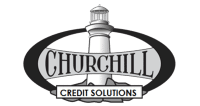In December, you probably reviewed your finances and saw that the debt you carried was bearable. However, nobody was expecting that the COVID-19 pandemic was going to bring the world to a halt and cause a financial crisis. Now, millions of American consumers are facing severe financial disruption, and their debt may be crushing them. For the past five years, U.S. household debt has risen steadily, topping at $14.2 trillion in December 2019. As record numbers of people have lost their jobs during the COVID-19 pandemic, debt that used to be manageable has become overwhelming (especially if you don’t have savings).
If you don’t have enough savings to help you get through this period and are overburdened with debt, it may be time to find a good credit counselor. A credit counselor can help you understand your options and guide you through making your emergency payments. Many economists believe that the world will adopt a “new normal” after the coronavirus shutdown is over, and you will want to be prepared
Who Is Credit Counseling For?
People who should consider getting credit counseling services are:
- Those who were in great standing before the COVID-19 pandemic and want to benefit from a short-term payment relief program;
- Those who are managing multiple credit accounts and are unsure of what they should do;
- Those who want to ask their lenders or creditors for help or just need some guidance;
- Those overburdened with debt and seeking the best debt consolidation program.
Credit counseling services are there to help people become aware of their debt relief options and assist them in negotiating a debt settlement or consolidation from their bank or lender.
How Credit Counseling Works
Credit counseling can come in two different forms – direct assistance and advice. For example, companies like Churchill Credit Solutions can provide help in the form of credit counseling, but they can also help you consolidate your debt to protect yourself from creditors. A meeting with a professional credit counselor can occur over the phone, online, or in person, and it takes up to an hour. You should prepare any documents that you might need, detailing your income, expenses, assets, and debt. Also, you will need a copy of your credit report. The counselor will review your finances, decipher the numbers to help you understand them, teach you about debt, and present you with all your options. Ultimately, the counselor will draft a personalized program to help you get back on track.
What Type of Assistance Can Credit Counselors Offer?
- Debt management plans. Debt management assistance typically means allowing your credit counselor to take over (if advice is not enough to help you fix your situation). The savings you can get from debt management can be substantial. The agency can negotiate with your creditors to shorten the schedule to end your debt (typically over a period of 3-5 years), lower interest rates, and reduce monthly payments.
- Debt consolidation. If you owe money to multiple creditors, another option is to look into debt consolidation. Instead of paying your credit counselor to handle your financial situation, you can merge multiple bills into one expense, lower the amount of debt you owe, and remove the stress and worry of paying multiple creditors. Your credit counselor can help you draft a debt consolidation plan.
- Assistance with student loans. Your credit counselor can try to optimize your student loan payment plan, which typically involves talking to the lender. If your student loan case is more serious, your counselor may suggest applying for forgiveness, consolidating your loans, or declaring bankruptcy.
- Assistance with housing. If you are struggling to pay off an oversized mortgage or make rent, you need professional financial counseling. Seek help before you buy a home, refinance, or get a reverse mortgage.
- Assistance with household budgeting. Sometimes, all we need is an experienced person to examine our financial goals, income, and expenses to help us find the best way to balance them.
Benefits of Debt Consolidation Programs
Credit counseling typically offers a debt consolidation program. By embarking on a debt payment plan like a debt consolidation program, all your debts to multiple creditors will be combined into a single debt for which you’ll have to pay a single monthly payment. You will pay it to a credit counseling agency that will distribute the amount paid to all your creditors. You will have 3-5 years to repay the total debt, and the agency will waive any financial penalty imposed on you.
If you decide to go for a debt consolidation program, both your monthly payment and interest rate may be lower than before. Also, you can choose to go with a debt settlement program, which means that you may resolve your debt by paying a lump-sum to your creditor. The lump-sum you will need to pay will be less than the amount you currently owe. With effective negotiations that aim to reduce interest rates, the debt settlement agency you partner with may be able to lower monthly payment amounts and move due dates.
More Tips on Preparing Your Household for the New Normal
- Start preparing your emergency fund
According to last year’s research, 1 in 5 Americans have no savings at all and have problems paying for unexpected expenses. U.S. citizens witnessed a recession in 2008 (and felt it more than the rest of the world). Now, another recession is looming behind the corner (an after-effect of the coronavirus pandemic). In March of this year, 701,000 Americans lost their jobs, and nobody knows if that figure will continue to rise. That’s why it’s critical to have an emergency fund in your bank account. When you have money to cover expenses for the next 3-6 months, you will have the confidence to fight any type of unexpected financial emergency. After the pandemic is over, it is necessary to open an emergency fund.
- Adjust your household budget for the post-pandemic world
Since everyone is busy thinking about their health and wellbeing, few people are really thinking about the economic condition of the U.S. We will know what the actual damage is when the pandemic is over. When revising your household budget, you should first remove luxury and other nonessential expenses. When the pandemic is over, the situation may worsen as economists predict a global recession that could last a while. When preparing your budget, prioritize the costs that are required to run your household.
- Determine where you can save to get a better interest rate
To earn money by keeping it in a bank, the best solution is to deposit it onto an online Certificate of Deposit account. Banks and credit unions offer Certificate of Deposit (CD) accounts, and they come with a premium interest rate in exchange for you agreeing to leave a lump-sum deposit for a predetermined period of time. The days when people considered brick-and-mortar banks the best solution are long gone. Compared to regular banks, the online CD solution is much more advantageous. Therefore, in post-coronavirus times, saving a considerable amount of money in an online CD is a move worth considering.
The world is heading towards an uncertain future, and you must understand why there’s so much urgency to develop the best financial strategies after the coronavirus pandemic. The U.S. federal government has helped us with the CARES Act stimulus checks, but that financial help is only short-term. We cannot depend on the government to cover our debts and pay our bills in the future, so we must consider making adjustments and developing better financial plans for the future. Once we manage to do that, with the help of our credit counselors, the future may not be so bleak.
An organization with experience and expertise in credit counseling and debt management programs can help you make sense of all your options to protect your household. For years, Churchill Credit Solutions has been helping our clients achieve financial freedom, and our certified credit counselors are there to help you make a financial assessment and identify your options to manage financial setbacks. We have helped people resolve their debt through various programs and services designed to help you take control of your finances.



